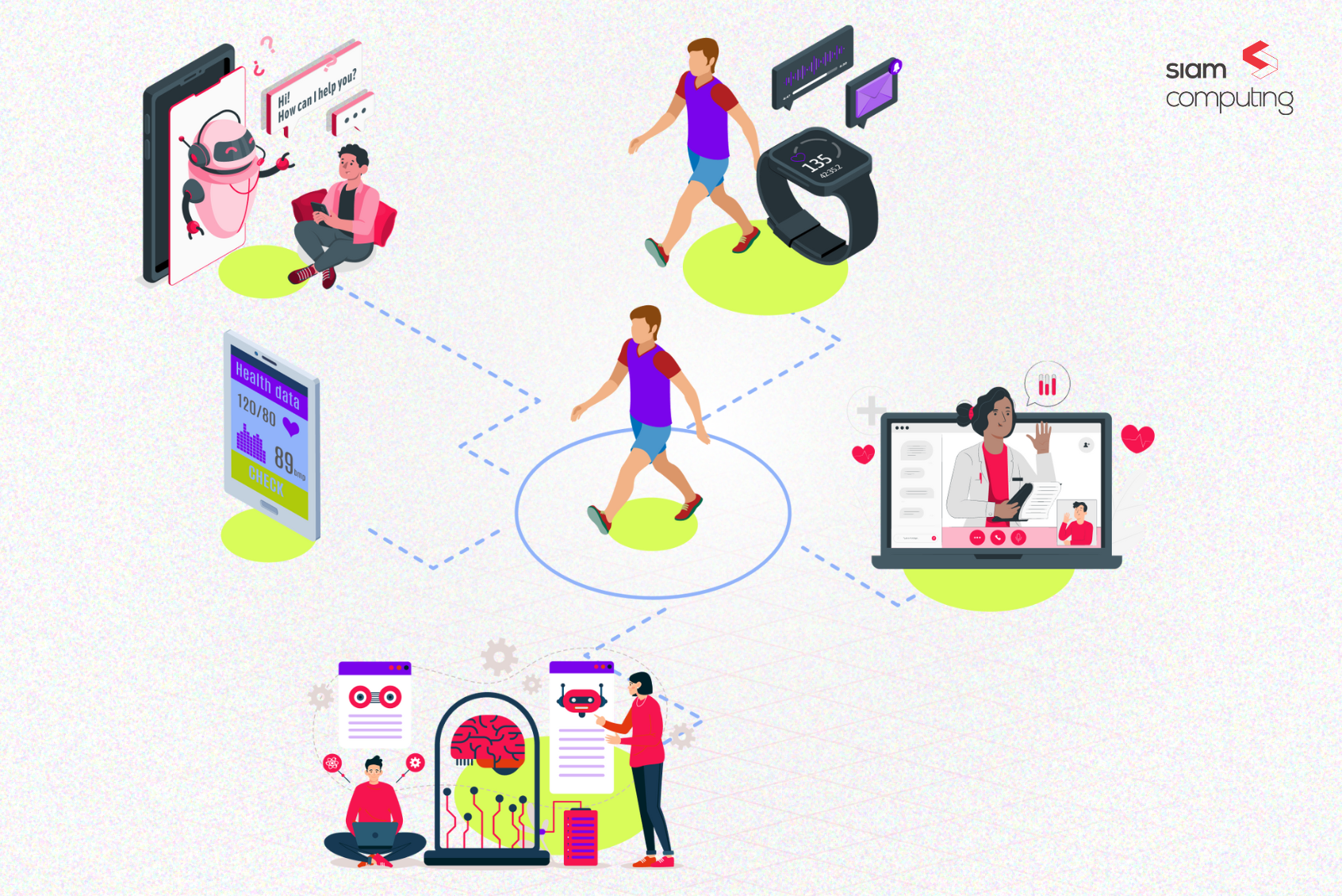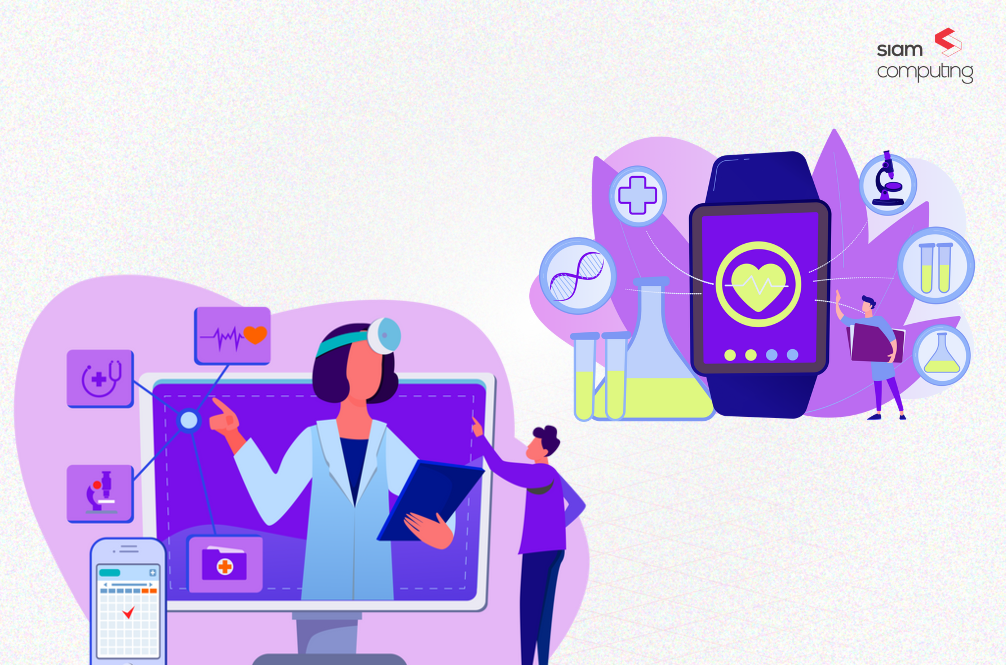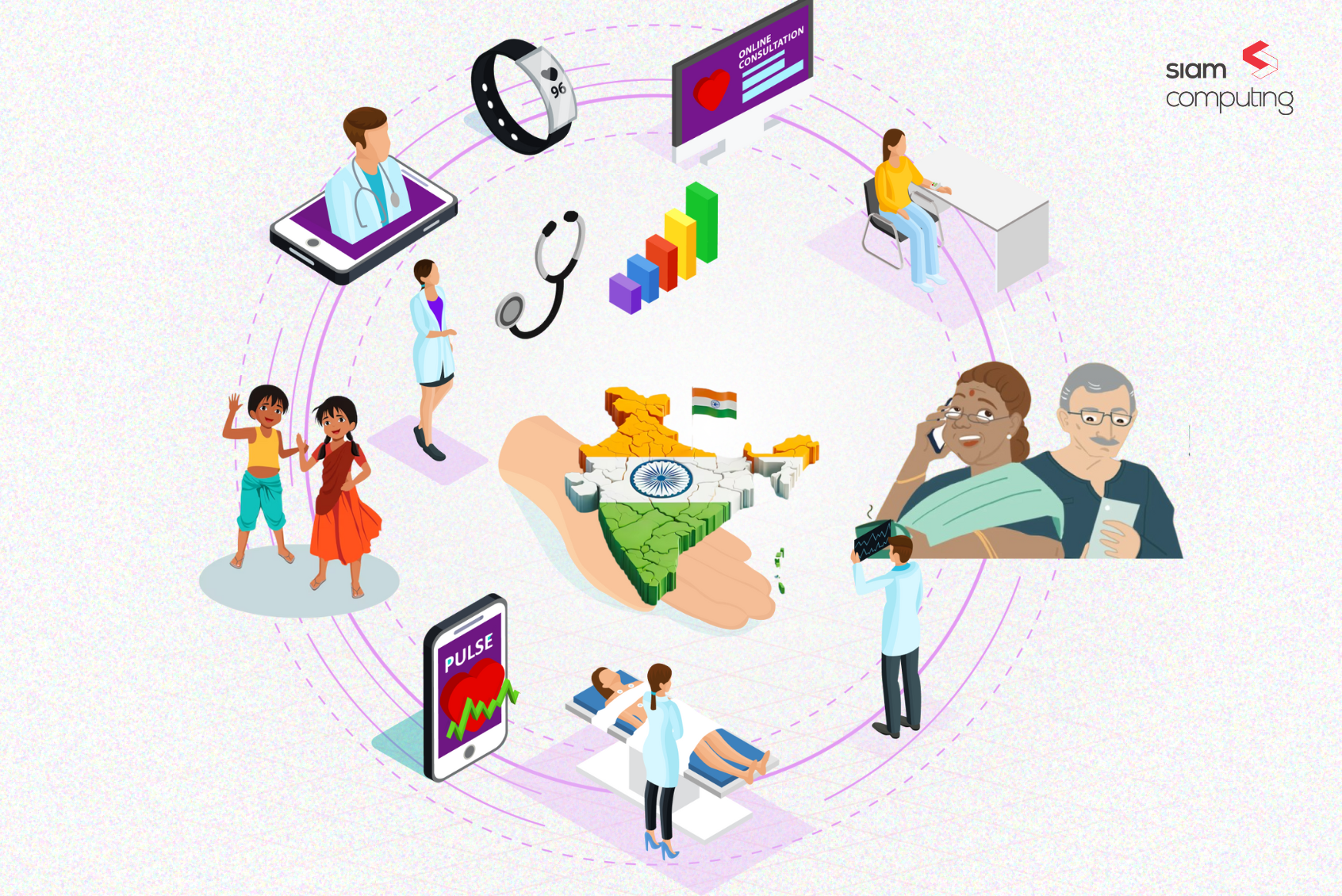The shift from traditional paper-based systems to Electronic Medical Records (EMRs) or Electronic Health Records (EHRs) has been heralded as a transformative leap in modern healthcare. Many Indian hospitals proudly proclaim their status as paperless institutions, emphasizing the efficiency, accessibility, and patient-centricity that EMRs bring to the table.
However, is the reality truly reflective of the proclaimed paperless utopia, or are there lingering challenges that demand a more nuanced exploration?
While EHRs or EMRs are the biggest step toward going paperless, most organizations still manage volumes of paper which prevents the establishment of truly integrated care systems in which relevant information is available to all stakeholders in real-time, from hospital management to patients and regulatory authorities.
The EMR Leap and Hidden Paper Trails
The advent of EMRs marked a significant milestone in the digitization of healthcare documentation. These electronic repositories of patient information promise streamlined workflows, reduced errors, and improved accessibility for healthcare professionals.
The transition from deciphering handwritten notes to the ease of digital records seemed like a leap toward a paperless future. In India especially, where the diversity of languages and healthcare practices can pose significant challenges, the digitization of patient records through EMRs was seen as a breakthrough.
However, the Indian healthcare landscape is vast and diverse, with healthcare providers ranging from state-of-the-art urban hospitals to smaller rural clinics. The effectiveness of EMRs varies across these settings. For instance, urban hospitals may seamlessly integrate EMRs into their workflows, but challenges persist in smaller healthcare facilities due to resource constraints and the need for tailored solutions.
Even in urban hospital settings where the paperless revolution is often advertised and boasted, there are corners within hospitals where the rustling of paper documents is not entirely silenced. Consent forms that need a physical signature, a critical component of patient care, are a prime example of the hidden paper trails that persist despite the digitalization drive. Consent signatures remain a common practice due to legal and cultural considerations.
So, residual paper processes, often overlooked in the excitement of EMR adoption, continue to linger. This raises questions about the true extent of a hospital’s paperless commitment and the need for a more comprehensive approach that goes beyond EMRs.
Challenges of Hybrid Workflows: Digital vs Physical
The coexistence of digital and physical documentation gives rise to hybrid workflows, presenting unique challenges in the pursuit of complete paperlessness. In India, the coexistence of digital and physical documentation is not just a challenge but a necessity dictated by the diverse healthcare settings we saw above like the urban-rural divide, where access to technology and digital literacy may be limited.
In such cases, hybrid workflows, where digital and physical records coexist, are a pragmatic approach in the Indian context. In the intersection of these two worlds, inefficiencies emerge, hindering the seamless communication and collaboration that digital systems promise.
For instance, in scenarios where patient information needs to be shared across departments or with external entities, the bridge between digital and physical documentation can become a bottleneck.
This hybridity not only undermines the potential efficiency gains of digital systems but also introduces complexities in data security and compliance. Bridging this gap requires a nuanced understanding of the unique challenges posed by India’s diverse healthcare landscape.
It raises the question: Can a hospital truly be paperless if it operates within a framework that still clings to physical documents in certain critical processes?
Beyond EMRs: Integrating AI for Complete Paperlessness
As hospitals grapple with the challenges of hybrid workflows, the integration of Artificial Intelligence (AI) emerges as a transformative force capable of pushing the boundaries of paperless healthcare.
But to truly harness the power of AI, it’s crucial to understand the unique challenges faced by Indian hospitals like resource disparities, linguistic diversity, and variations in healthcare practices, which create a tapestry of complexities that demand innovative solutions.
AI has the potential to bridge these gaps by offering intelligent automation that adapts to the specific needs of different Indian healthcare settings. From large urban hospitals to smaller rural clinics, AI can be tailored to streamline workflows, automate administrative tasks, and enhance overall efficiency.
Envisioning Truly Paperless Possibilities with AI:
Multilingual Capabilities: India is a linguistically diverse nation, and healthcare solutions need to reflect this diversity. AI systems with multilingual capabilities ensure that patients and healthcare professionals can interact seamlessly in their preferred language, eliminating language barriers.
Adaptability to Varied Workflows: Healthcare workflows in India vary significantly between urban and rural settings. AI solutions with the power of machine learning can adapt to these diverse workflows, ensuring that technology enhances efficiency without disrupting established practices.
Automated Transcription Services: Transcribing handwritten notes into digital records has been a persistent challenge. AI-driven transcription services not only convert spoken words into written records but can also recognize medical terms, ensuring accuracy and saving healthcare professionals valuable time.
Enhanced Decision Support: AI can provide decision support systems by analyzing vast amounts of patient data. This aids healthcare professionals in making informed decisions, particularly in cases where time is of the essence.
Digital Health Assistants (Chatbots): AI-driven digital health assistants powered by natural language processing (NLP) can handle routine patient queries in any language, and process appointment scheduling, and prescription refills. This frees up healthcare professionals to focus on more complex tasks, improving overall patient care.
Predictive Analytics for Preventive Care: AI’s analytical capabilities can be harnessed to predict health trends and recommend preventive measures. This is particularly crucial in India, where preventive care can significantly impact public health outcomes.
Telemedicine Integration: AI can play a pivotal role in telemedicine by analyzing remote patient data, facilitating virtual consultations, and even assisting in remote diagnostic processes. This is especially valuable in reaching patients in remote or underserved areas.
AI-Enhanced Imaging and Diagnostics: Integrating AI with medical imaging can lead to faster and more accurate diagnostics. AI algorithms can analyze medical images, detect anomalies, and provide valuable insights for timely interventions.
India, with its vast population and resource disparities, stands to benefit significantly from AI-driven solutions that go beyond the capabilities of traditional EMRs. While EMRs play a crucial role in digitalizing patient records, intelligent automation powered by AI can offer a more holistic approach by automating administrative tasks, transcription services, and other processes that traditionally involve manual input.
This reduces administrative burden and allows healthcare professionals to devote more time to patient care. This shift from merely digitizing existing processes to reimagining them with AI holds the key to achieving true paperlessness.
Crafting Paperless Digital Patient Experiences
We’ve seen that the journey toward paperlessness extends beyond internal workflows; it encompasses the entire patient experience. While EMRs have improved data accessibility for healthcare providers, there is still room for enhancing patient engagement through digital means.
A truly paperless hospital embraces digital alternatives for patient education, consent management, and post-visit communication. Digital patient experiences go beyond the mere digitization of existing forms. They involve interactive platforms, where patients can access educational materials, provide consent digitally, and receive post-visit instructions through secure online channels.
The realization of a truly paperless hospital demands a strategic and phased approach. Hospitals can embark on this journey by:
- Conducting a thorough assessment of current workflows to identify remaining paper-based processes.
- Prioritizing the integration of AI technologies to automate administrative tasks and enhance overall efficiency.
- Engaging in ongoing training programs for healthcare professionals to adapt to new digital workflows.
- Implementing digital alternatives for patient interactions, education, and consent management.
- Collaborating with technology partners to ensure cybersecurity measures are robust and compliant with industry standards.
In doing so, hospitals can move beyond the confines of EMRs and embrace a comprehensive vision of paperlessness that extends to every facet of healthcare operations.
Let’s Build a Truly Paperless Hospital Experience
Here’s a question for you: Is your hospital truly paperless, or is there a broader, more comprehensive vision waiting to be realized? The answer lies not just in the elimination of paper-based processes but in the holistic embrace of digital technologies that redefine healthcare delivery for the better.
The journey toward paperlessness is not a one-size-fits-all endeavor. It requires a nuanced understanding of the unique challenges each healthcare institution faces and a tailored strategy that aligns with its vision and resources.
By acknowledging and addressing residual paper processes, navigating the challenges of hybrid workflows, and leveraging AI technologies, hospitals can redefine the standard for comprehensive paperless healthcare.
Speak to our product strategists and experts who have worked with leading hospital chains across India, to turn your hospital into a truly paperless healthcare institution.








